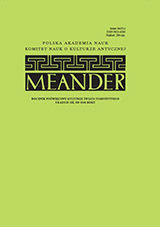
Epikur z Samos: List do Menojkeusa (Diog. Laert. X 122-135)
An annotated translation of Epicurus’ important ethical writing.
More...We kindly inform you that, as long as the subject affiliation of our 300.000+ articles is in progress, you might get unsufficient or no results on your third level or second level search. In this case, please broaden your search criteria.

An annotated translation of Epicurus’ important ethical writing.
More...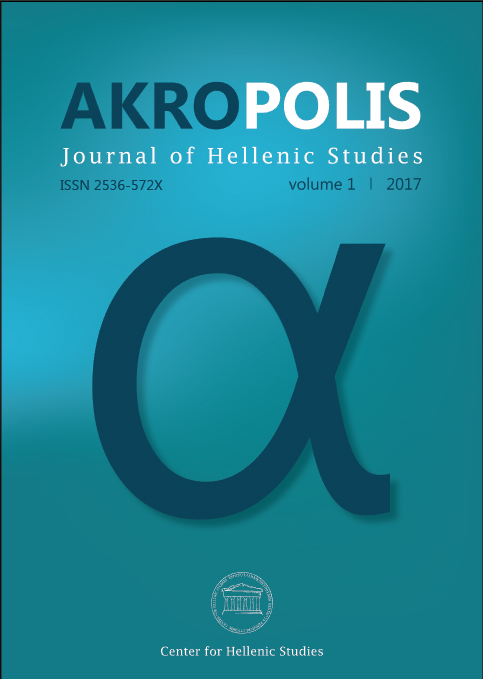
This essay examines several of Plato’s philosophical texts to show how in the process of trying to differentiate rhetoric and medicine—to prove that medicine is an art or science like philosophy, and that rhetoric, in comparison, is just a knack or skill—Plato indirectly and unwittingly reveals just how similar the two practices may be. As such, this essay seeks a fuller interpretation of Plato’s attitude toward rhetoric, supplementing the work of scholars who claim the only evidence Plato gives us about an ideal rhetoric is through its relationship to philosophy. This essay shows instead that Plato captures the potential of rhetoric as a true art precisely through its intricate relationship to medicine.
More...
There are some passages within the Aristotelian corpus that indicate that Aristotle argued for a wider and more cosmic teleology than he is usually understood to have held. There are two interpretive camps that have been formed as a response to these passages. The first argues that Aristotle held only the internal teleology that he is commonly associated with, and the second argues that Aristotle must have defended a hierarchical teleology in which some things in the universe are meant to benefit other things. I argue that both sides are mistaken, and that the key to understanding Aristotelian teleology is through a correct interpretation of Metaphysics Λ 10.
More...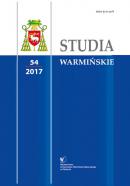
It proved the position according to which, in the study of a particular “words of love” in Ancient Greek or Latin Dictionaries, it must indicate in what period, what form of cultural heritage (literature, geography, history, philosophy, etc.) his used. This approach, in opinion of author, be able to give a more objective and complete picture of a particular understanding of the diversity of one or the other “word of love”. It was revealed that in the study of the philosophical understanding of love, amorousness, friendship is must not limited to the classical works of Plato (Symposium, Phaedrus, Lysis) and Aristotle (ethical works of Stagirite) in the context of these phenomenons. This methodological position will allow for the understanding of the evolution of the views of both the Titans of Greek philosophy, as well as avoiding any “prejudices” that the matter can be found in the pages of some of the scientific research. It is noted that among the philosophical heritage of ancient civilization on the phenomenon of love is not enough studied of fragments of the early Greek philosophers (notably anthropological aspect of love), the Sophists and the Socratic schools, as well as treatises of representatives schools of the Hellenistic period.
More...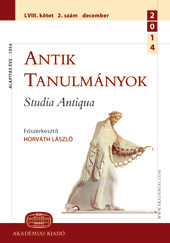
In Greek philosophy, the idea of a “personal daimon” accompanying man throughout his life first appears in Plato’s writings. By examination of the relevant passages of the Platonic corpus we find that this idea has undergone major changes even within Plato’s philosophy. However, the basic motif remained the same: the personal daimon’s role is to lead one to his fate. Plato’s heirs felt the need of harmonizing their master’s different conceptions which at certain points seem to contradict each other. In my study, I shall investigate the works dealing with the idea of personal daimon all of which are from Middle- and Neoplatonic authors. These texts show that each era has its unique concept of personal daimon characteristic to it: in Middle Platonism, the personal daimon is intertwined with the idea of Socrates’ daimonion and it has become some kind of reward for a virtuous life, while in Neoplatonism it helps the soul in its quest for salvation.
More...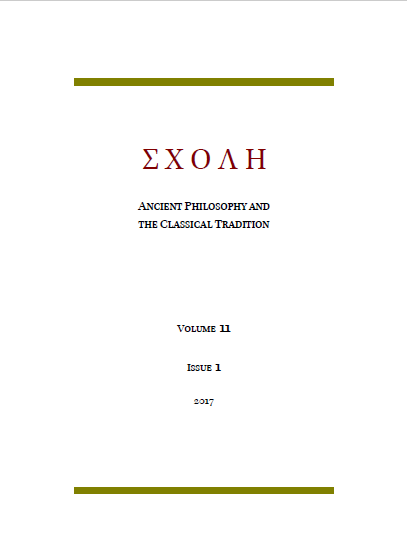
This article attempts to reconsider the customary assessment of the performances attributed to one of the last Early Pythagoreans, Eurytus of Tarentum. His practice of «defining » a thing with the number of pebbles needed to draw its silhouette is usually regarded as a naïve or unworthy version of the number philosophy of his teacher, Philolaus of Croton. Our approach focuses on the concept of the limit, or the boundary (ὅρος), used by Aristotle to explain Eurytus' practice, which we analyse in the context of Aristotle's testimonies distinguishing Early Pythagoreanism from its interpretations in the Early Academy. We strive to show that the idea underlying Eurytus' performances deserves more appreciation in the context of Presocratic philosophy, and to lay a basis for an alternative approach to the interpretation of this practice.
More...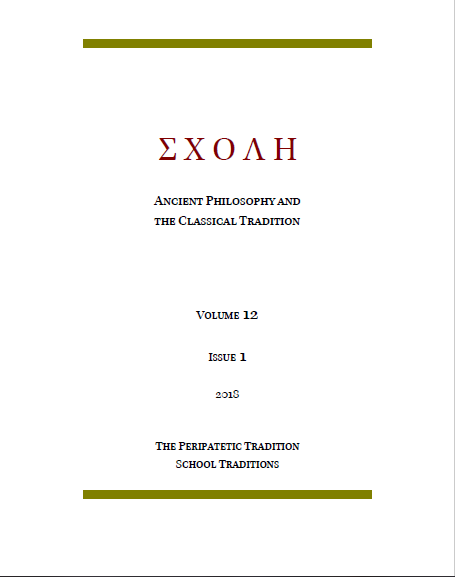
The main subject of the study is the criticism of Aristotelian categorical system proposed by Plotinus. Treatises VI 1-3 focus on the problem of the possibility of thought within particular system of categories (Plato, Aristotle, Stoics). Plotinus identifies categories with the kinds of being, being based on the tradition of such identification originated in the Plato’s “Sophist”. In some texts Aristotle himself speaks of categories as the kinds of being (An. Post. 88b 1, Metaph. 1024b 9-16, De An. 402a 23-5). The article is divided into two main parts. The first part is about Aristotle’s position. I discuss the following questions: 1) what does the common name “being” mean; 2) why may the categories be the kinds of being and why should the substance be the first among the categories; 3) how are the substance and other categories related? The second part is about Plotinus’ criticism. Plotinus asserts 1) that not the substance, but being is the subject matter of the first philosophy, 2) that ten categories are not equally applicable to the intelligible world and to the world of sense, and 3) that the substance has two different meanings with respect to these worlds, and therefore the substance can’t be one kind, which includes the corporeal and incorporeal substances.
More...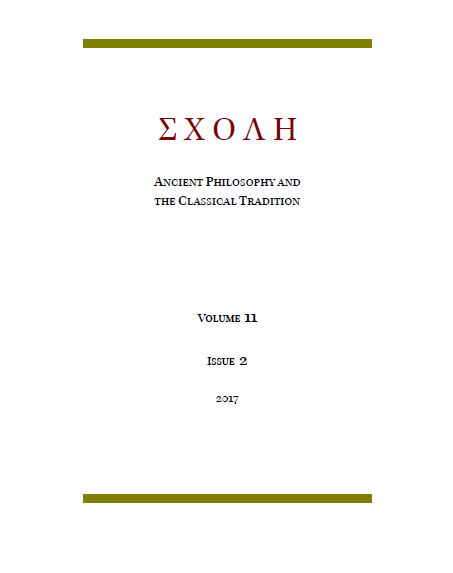
Boethius does not accept the principle of realism that considers truth as the adaptation – or adequation – of the subject to the knowable object, and instead defends that knowledge should be studied by relating it to the capacity of the cognoscente subject. Thus, truth is relative to the faculty or level of knowledge in which we stand, since each faculty – each level of knowledge – has its own object: the material figure for the senses, the figure without matter for the imagination, the universal for reason and the simple form for intelligence. But this epistemological relativism is moderate, precisely because of its hierarchical character. Therefore, although in a sense truth is manifold, the perfect truth, proper to divine knowledge, includes and surpasses all others. In order to cement the architecture of this system of relativisation of knowledge, Boethius starts from a Neoplatonic interpretation of the simile of the line of the Republic (VI.510a-b) and Plato's Timaeus, but not completely tied to it. The beings endowed with knowledge are ordered according to the Neoplatonic hierarchy of cosmic realities.
More...
According to a later report (Synesius, Calvit. Enc. 22.85c, Aristotle, On philosophy, fr. 8), Aristotle thought that wise sayings are the “relics” (enkataleimmata) of the past art (tekhne), preserved thanks to their conciseness and cleverness when ancient civilization perished in a world cataclysm and, in this respect, they are valuable clues for a retrospective reconstruction of the intellectual history of Greece. Aristotle did this and, in fact, was the first to develop in his works a peculiar sense of historical consciousness, prerequisite for such a reconstruction, although some contemporary authors would contest this view. In the paper I am commenting on selected fragments of and testimonies about Aristotle’s lost works (mostly On philosophy, On poets, and On the Pythagoreans) and observe how he used this historical observations in his philosophical treaties, having thus paved the way to a systematic historical research, conducted by the Peripatetics in a pre-established institutional framework.
More...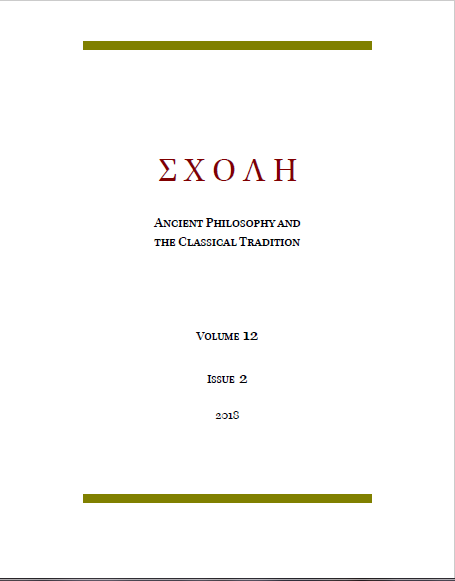
The paper aims to explicate the notion “ataraxia” in light of its untenable, as I argue, interpretation by M. Gabriel. This philosopher presupposes ataraxia as a total quietism and draws a conclusion, undesirable for Sextus, that the skeptical program of attaining the happiness, which is defined by Sextus as soul tranquility, is inconsistent since the sceptic can never be happy in virtue of incompatibility of inactivity with the skeptical investigation. The first part of the paper conveys the role of ataraxia in Sextus’ Pyrrhonism as it is interpreted by Gabriel. In the second part, we come to define ataraxia not as a total quietism (as in Gabriel), but as a suspension of all judgments and a freedom of all distress.
More...
The main subject of the study is the problem of theodicy in the philosophy of Plotinus. In the texts devoted to the problem of evil and theodicy, Plotinus argued against two types of evil – the evil in itself, or the first matter, and evil as an accidental property, among which is the sin of the soul. The first and second series of arguments represent two different versions of theodicy, which have already been previously represented in Platonism – in Plato and Plutarch. However, Plotinus' arguments are of great strength, since they work within the framework of an integral monistic doctrine.
More...
Aristotle and his followers, such as Aristoxenus and Dicaearchus, present Pythagoras, the Pythagoreans and Empedocles as figures not entirely devoid of legendary features. At the same time the Peripatetic biographers do not fail to place them in proper historical setting as intellectuals, initiated important philosophical and religious movements. According to Dicaearchus, for instance, the sages are known for their highly practical maxims and general rules of right conduct; Pythagoras developed a new lifestyle and promulgated it in his public and private teaching; Socrates introduced a new form of intellectual and moral pursuit; while Plato founded an institutional framework for philosophical studies having thus paved the way to a systematic research, conducted by the Peripatetics, etc. In a striking contract with this, in the dialogues of their contemporary Heraclides of Pontus Pythagoras, Empedocles and other ancient philosophers are predominantly literary figures and super-heroes who’s supernatural powers are clearly beyond the reach of ordinary men. At the same time, the theories these fictitious personages profess are tailored according to a recognizably Platonic draft. In this work the present writer continues his studies of ancient biographic tradition initiated in a series of articles, published in two previous issues of the journal [Schole 10 (2016) 271–282 and 11 (2017) 570–607].
More...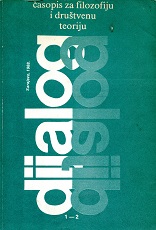
Insufficiency and inaccuracy of historical sources utilizes quite frequently the expereince of artistic fiction in the attempt to make a relevant judgement on the certain era, deed, man. Perhaps the most striking examples of such supplement are represented by Acragant’s philosopher Empedoekles (controversial and often opposite and untenable statements were made on his life and work) and J. H. F. Hölderlin (he is called the last great »Hellenic« poet, although he lived some twenty centuries later) with his uncompleted drama Empedoekl’s Drama. Through constant substitution and supplementation of historical and fictional, we postulated the general thesis which we hold to be true: »Speaking in between«, as the only possible speech, and reality and fiction as horizons of the reachable, real Being.
More...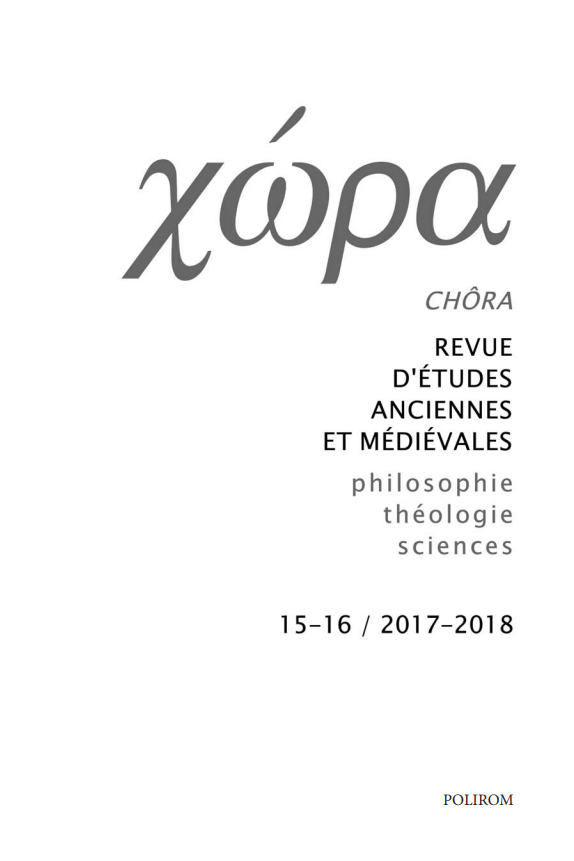
Questo articolo argomenta in favore della tesi di una collaborazione tra sensi e ragione nella gnoseologia di Empedocle. Il primo difensore di questa tesi, Sesto Empirico, distingueva nel pensiero empedocleo due forme di ragione (λόγος), una umana e l’altra divina. Viene sostenuta qui l’identificazione della ragione divina menzionata da Sesto con il dio protagonista del fr. 134DK, a cui il suo citatore, Ammonio, attribuisce il nome di Apollo. L’analisi proposta cerca di mostrare in particolare 1) che il dio menzionato nel fr. 134 è il sole della comologia empedoclea conosciuto grazie alla testimonianza di Aezio (A56); 2) che la costi tuzione fisica di questo dio solare, immagine luminosa proiettata sulla volta dell’etere, ne fa una figura velata della conoscenza, come relazione necessaria di esperienze sensibili e di contenuti intellettivi. La tradizione pitagorica che identi ficava il sole con Apollo troverebbe un prolungamento nella divinizzazione empedoclea della ragione.
More...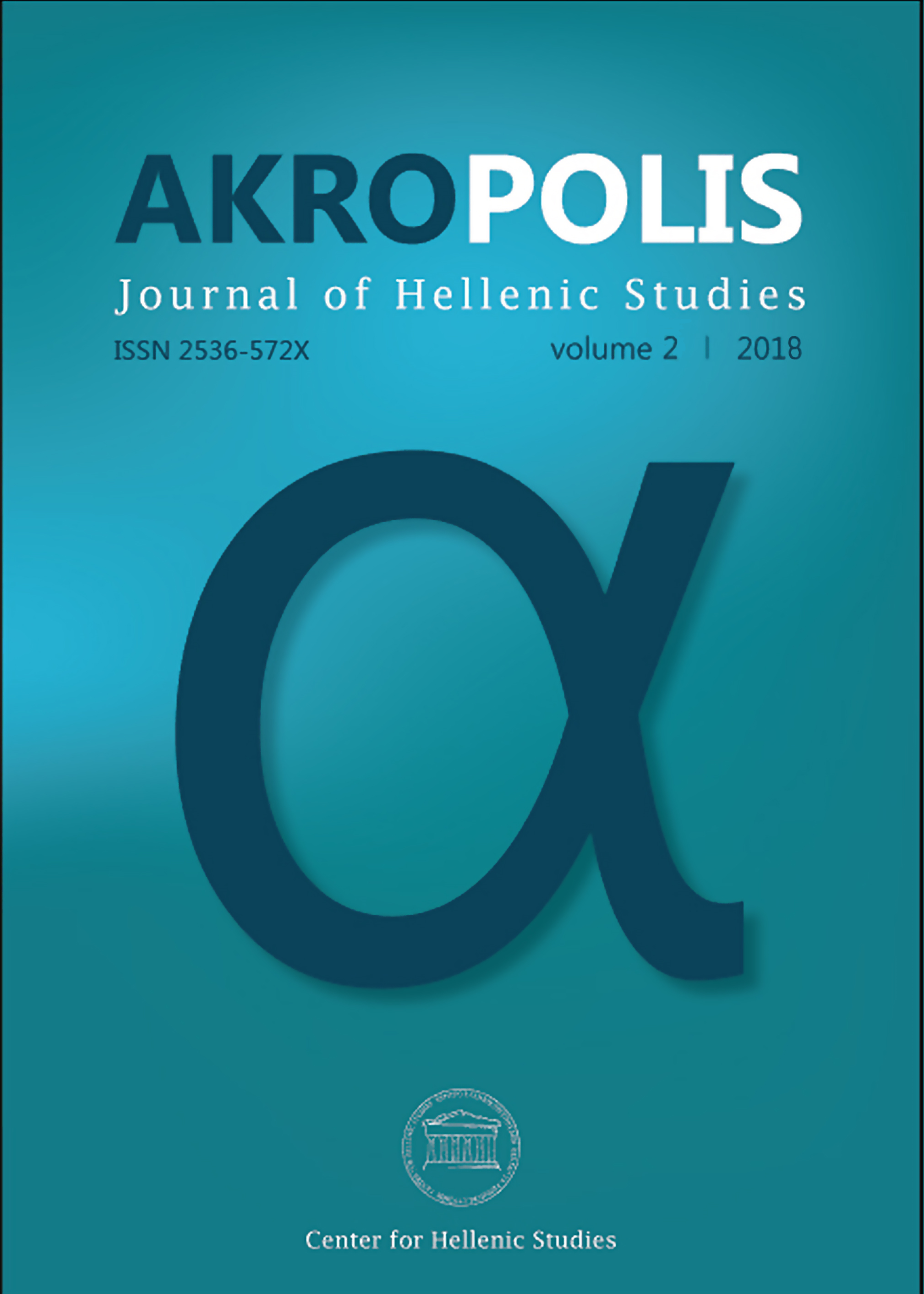
According to Democritus' anthropogeny is a microcosmic consequence within the process of cosmogony. However, the case of man is a peculiarity: man, this atom complex, is well aware of himself, yet is not aware of what he must do. Man does not naturally do that which promotes the harmonious ordering of his atoms. We must create a second nature. Now it becomes possible for us to be as we must be according to our first nature. Democritus is the is first thinker who explains to us what our nature is and who, from our being, derives an ought: he who wishes to do the right thing for both himself and others finds himself subject to the ought requirement to do that which brings the most calm to the atoms. This is a direct connection between being and ought, an extravagant mechanical existentialism.
More...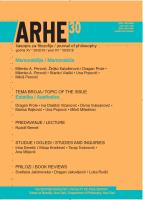
The perception of physis in the philosophy of Milesians by necessity begins by the insight of the prephilosophical understanding of the life force in Homer's epics as the organic unity of the divine and the φύσις. The task of this insight is to emphasize the inseparability of the divine from the beginning (αρχή) of what is in a permanent being. In this paper, the expression of the divine in the philosophy of Milesians is seen in a significantly different way than the understanding of the Hellenic custom. Understanding the divine in the philosophy of Milesians is essentially a "geometric method" that was used to reveal φύσις, which lies in the laws of proportions, harmony, symmetry. As what precedes the change, αρχή is the bearer of the order that is shown in geometric laws. In that sense, what gathered Thales, Anaximander and Anaximenes is not only a kind of vitalism, which the αρχή of Milesians observes as a life-bearing (ζωή), but a divine order of φύσις in substancial beginning, which precedes every change. By this, the Milesians opened the methods of thinking in terms such as geometrization, quantification, the laws of analogy and the principles of sufficient reason. Therefore, attention is paid to Anaximander’s determination of beginning as ἄπειρον, and the reasons for this Anaximander's choice are especially described.
More...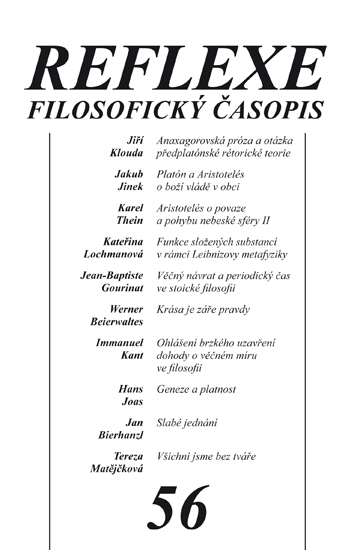
The study begins with the arguments used by Th. Cole and L. Schiappa for their well-known position regarding Plato’s influence upon the genesis of theory of rhetoric in ancient Greece. According to Cole and Schiappa, theory of rhetoric as a special discipline was made possible by the birth of metaphysical philosophy and its outlining of a basic theoretical frame in which theoretical rhetoric could be placed as a formal discipline pertaining to the extra-informative dimension of logos-as-style aside from the true, informative knowledge of things reflected in logos-as-philosophy. Subsequently the article discusses four treatises preserved in the Hippocratic collection: these are the De carnibus, De flatibus, De arte and De vetere medicina (mostly written in the form of a speech, and thus classified as rhetorical Hippocratic writings). We focus our attention on the reflexive procedures and terminology which the authors use to refer to the construction of the text itself. This reflexive feature, embracing both the form and the content of a text, is captured by the term hupothesis and the verb hupotithesthai. Surprisingly, the same term hupothesis denotes the all-knowing and all-pervading materialized cosmic mind. This cosmos-structuring principle, known from the late Ionic cosmology of Anaxagoras of Clazomenae, Archelaus of Athens and Diogenes of Apollonia, thus also functions as a text-structuring principle. This compositional function can be observed in the parallel texture of the treatises De carnibus and De flatibus, where the cosmological principle certifies its validity insofar as it is able to embody in a cosmological narrative all the partial topics characteristic for the broad encyclopaedic scope of Greek pre-metaphysical thought. On the other hand, only speech makes obvious the causal and other connections between partial things and structures. This method of making invisible things visible and observable by means of speech became an important part of the self-understanding of early Greek rhetoric. Similarly, the all-governing power of the cosmic mind served as a model for the universal power of speech, lauded by Gorgias. Thus, the late “Anaxagorean” phase of Greek cosmology was a clearly discursive practice, a reflected way of constructing a “physical” prose. Plato’s later attempt to reformulate rhetoric as a special formal discipline and to subordinate it to the new metaphysical philosophy largely neglects this discursive feature of late cosmology.
More...
The article discusses the notion of political theology as a basis for the idea of sovereignty in Plato and Aristotle. Contrary to those critical voices which view political theology as an attempt to misuse theology for practical-political purposes on the one hand, and those who question the very presence of political theology in classical Antiquity on the other, our interpretation shows that, first, both Plato and Aristotle do develop clear, though mutually distinct, political-theological positions and second, that in both cases, theological speculation has priority over considerations of practical policy. Concerning the difference between the two authors, however, it turns out that Plato is the only one for whom political theology is constitutive of what could be seen as a precursor of the modern idea of sovereignty.
More...
